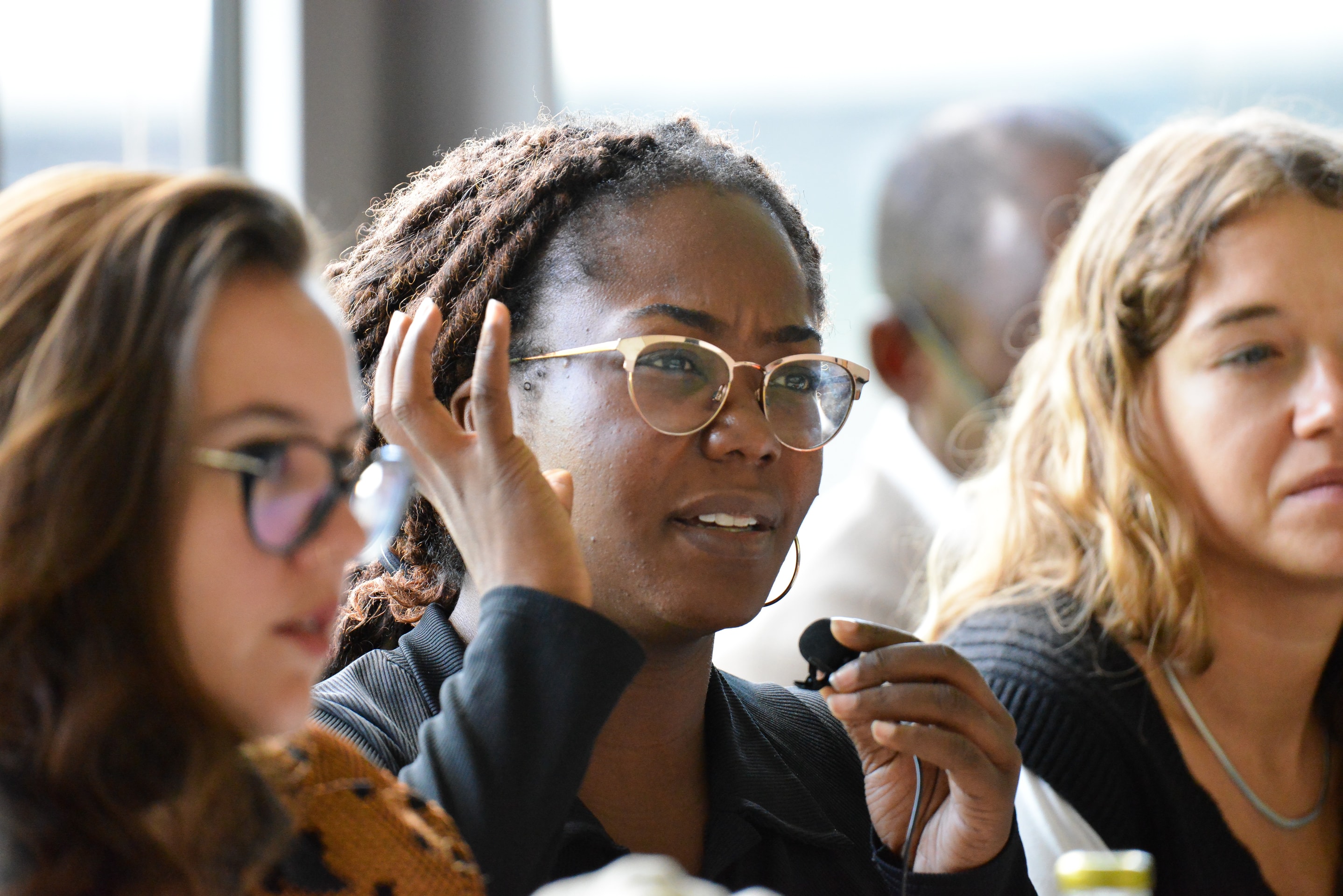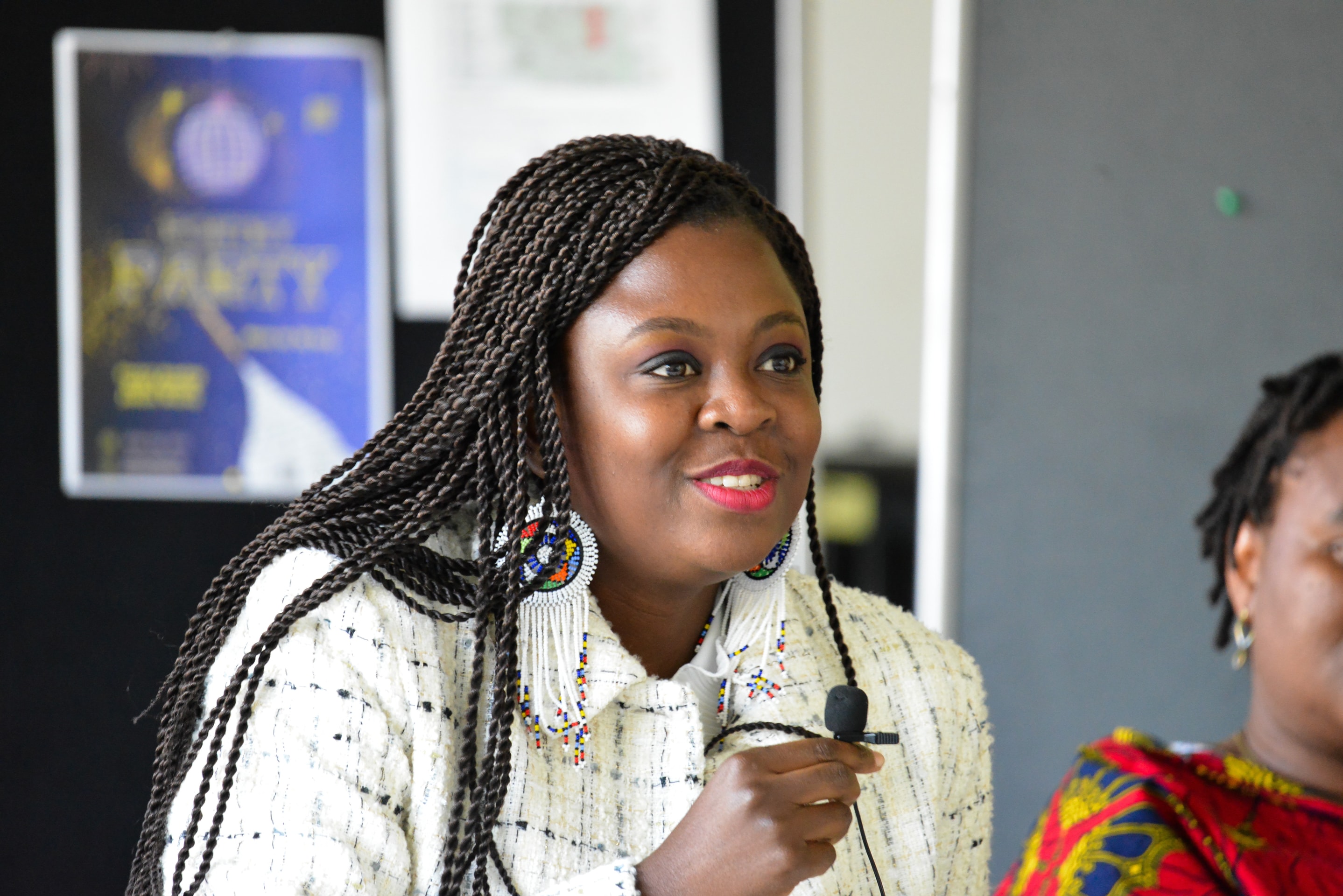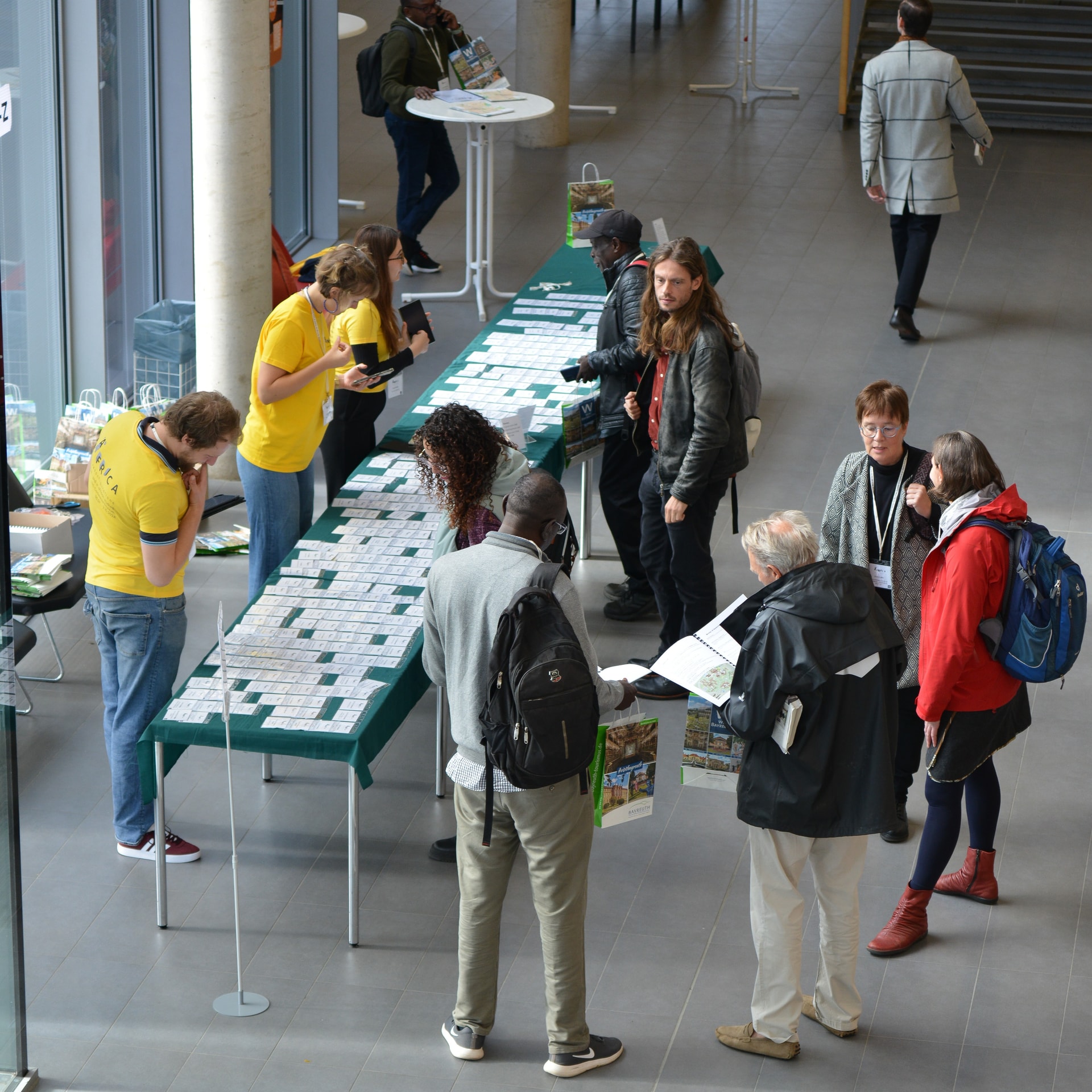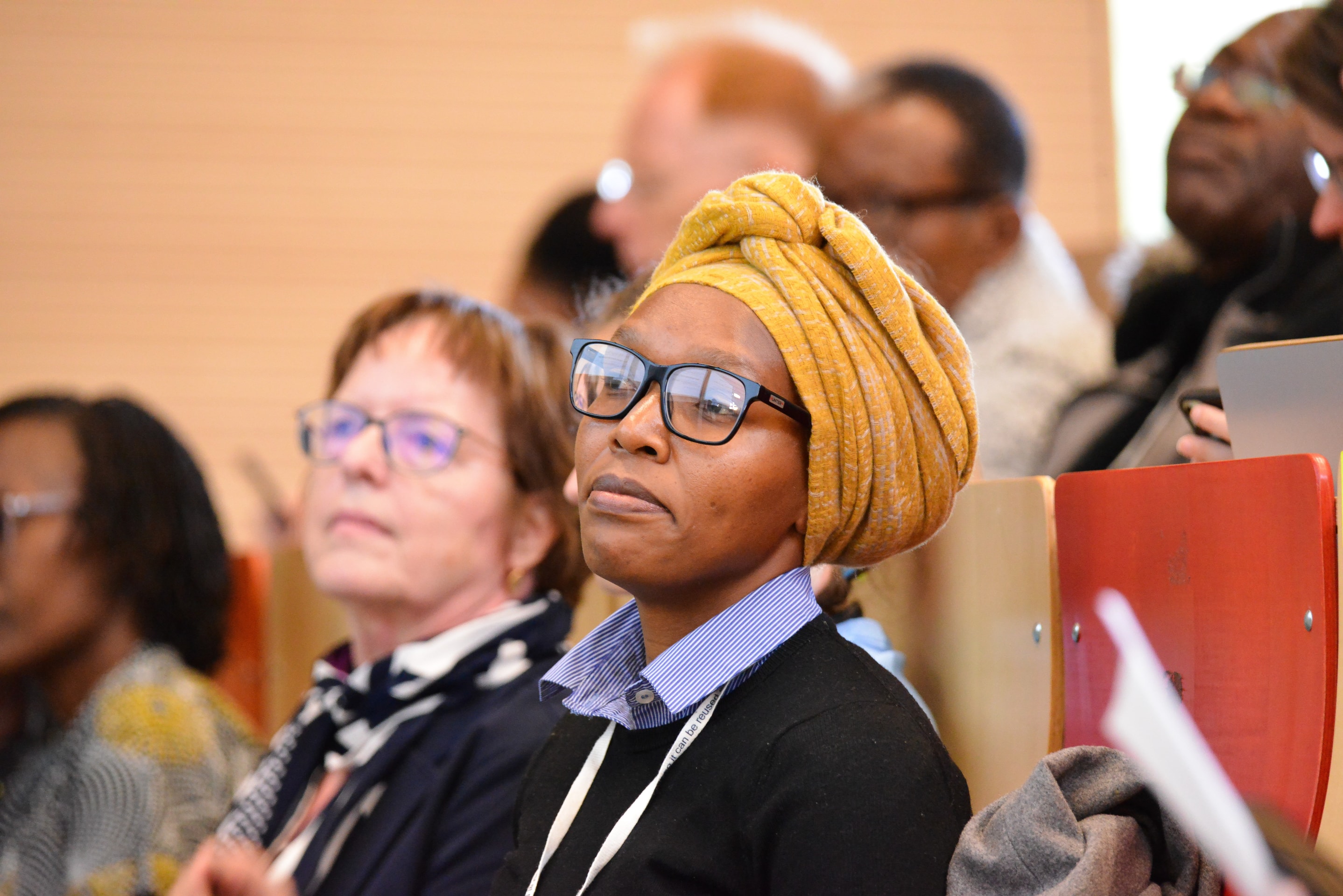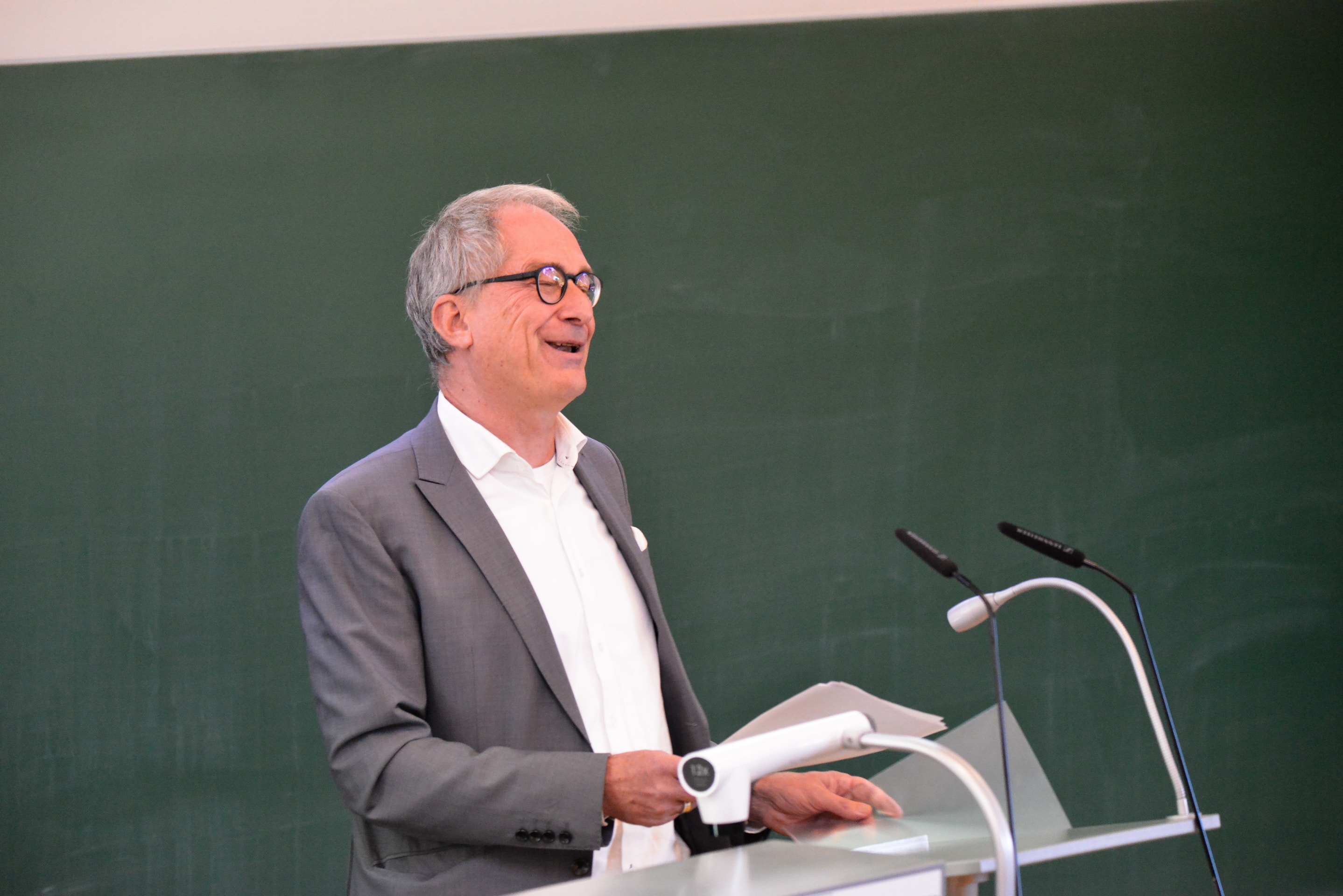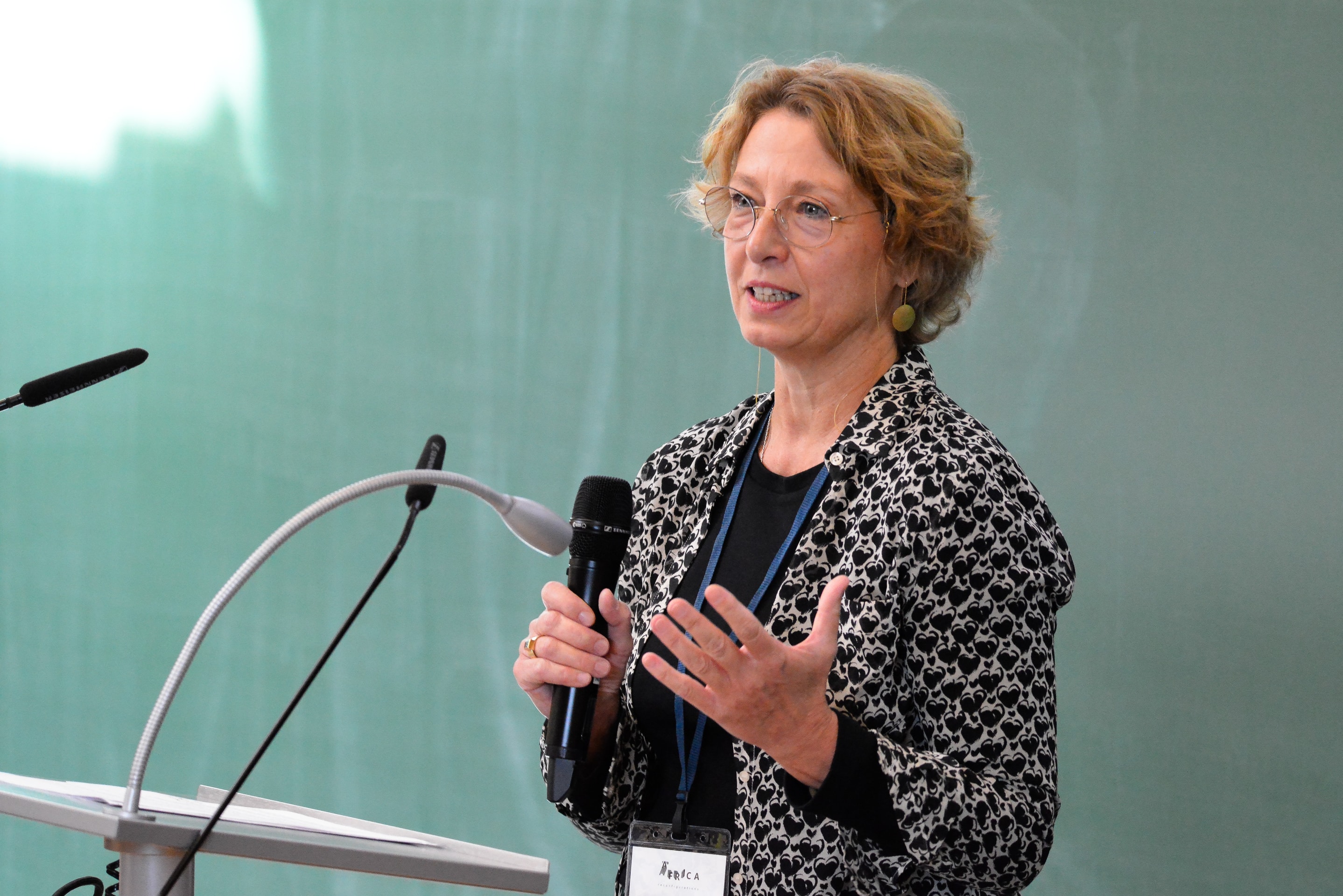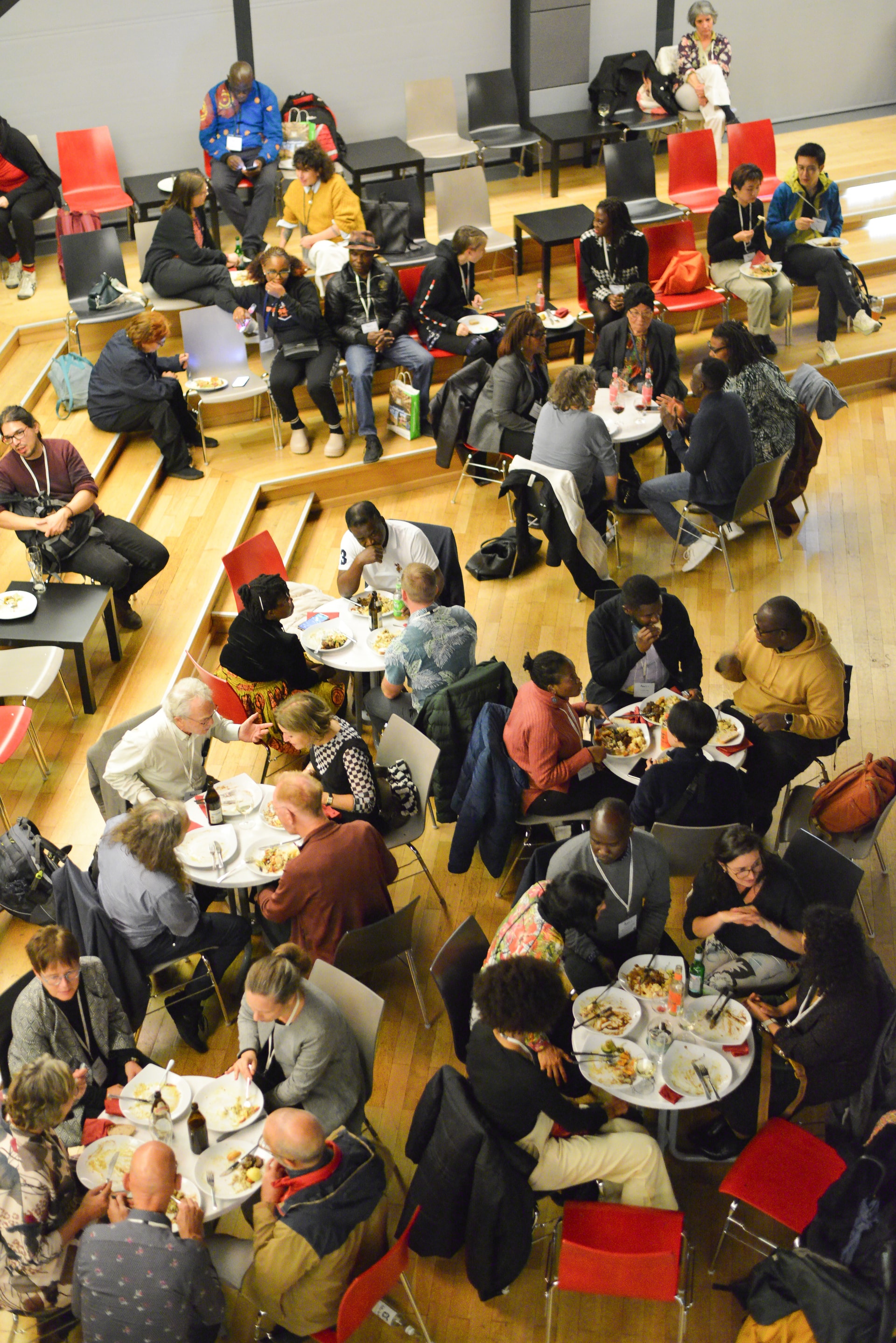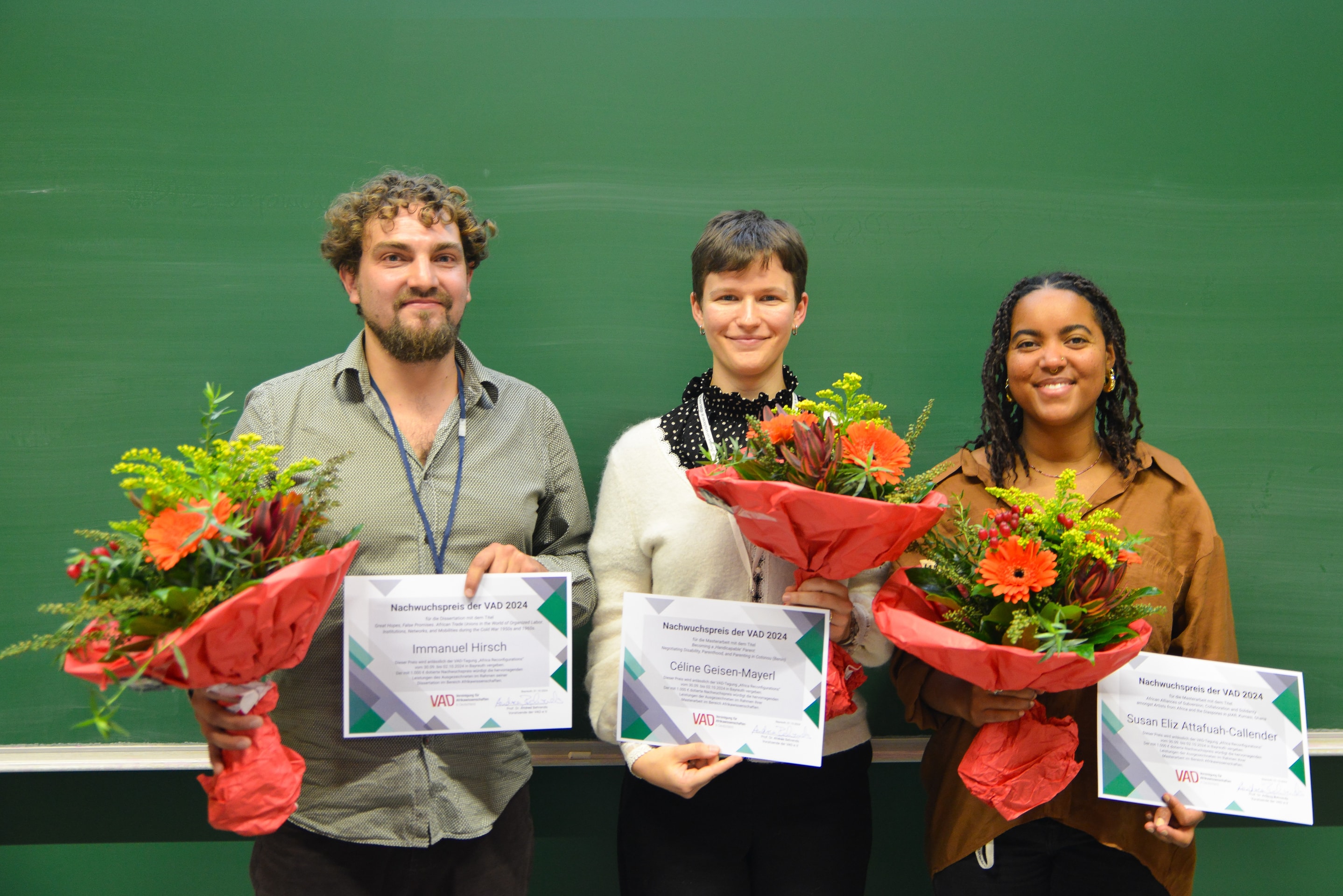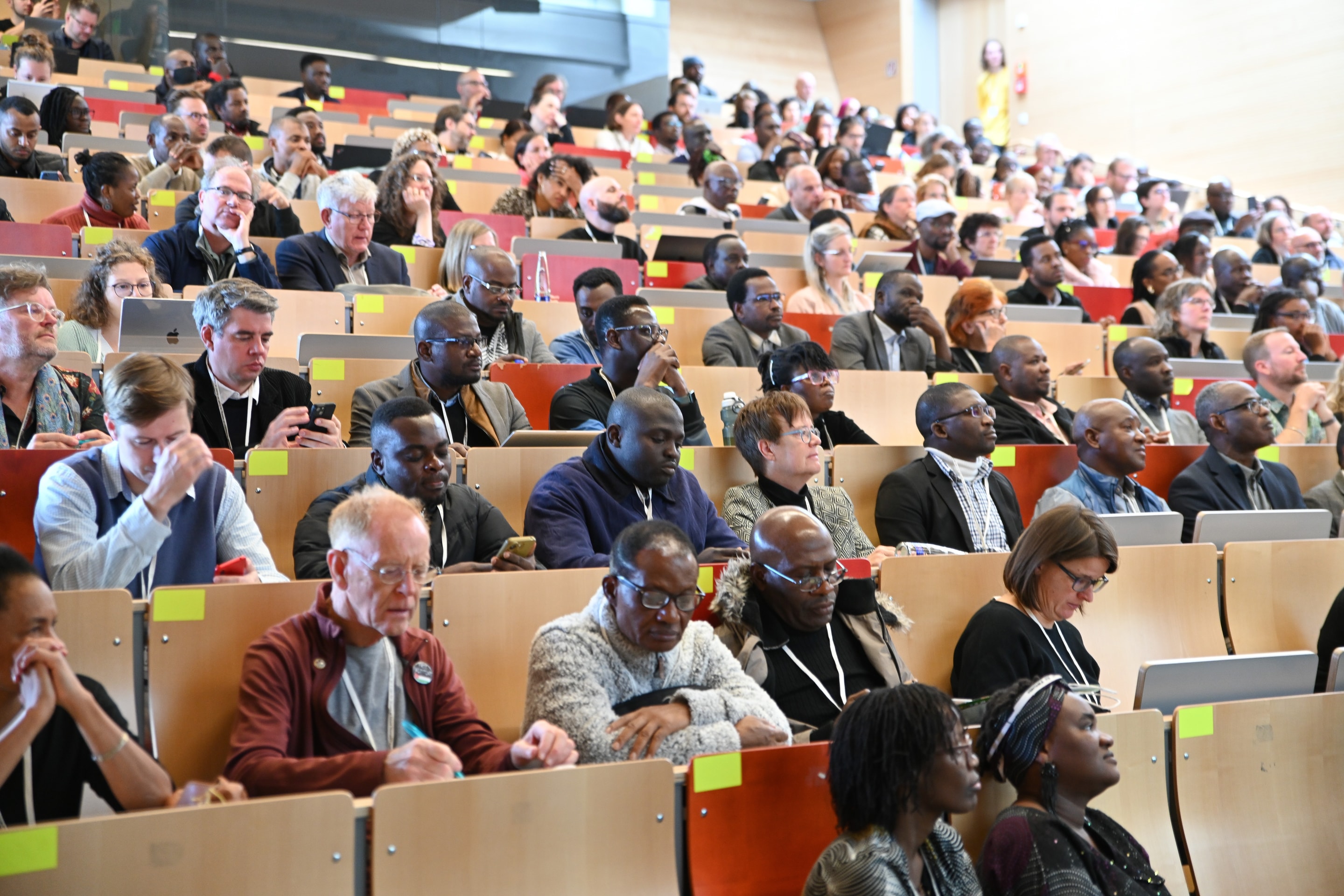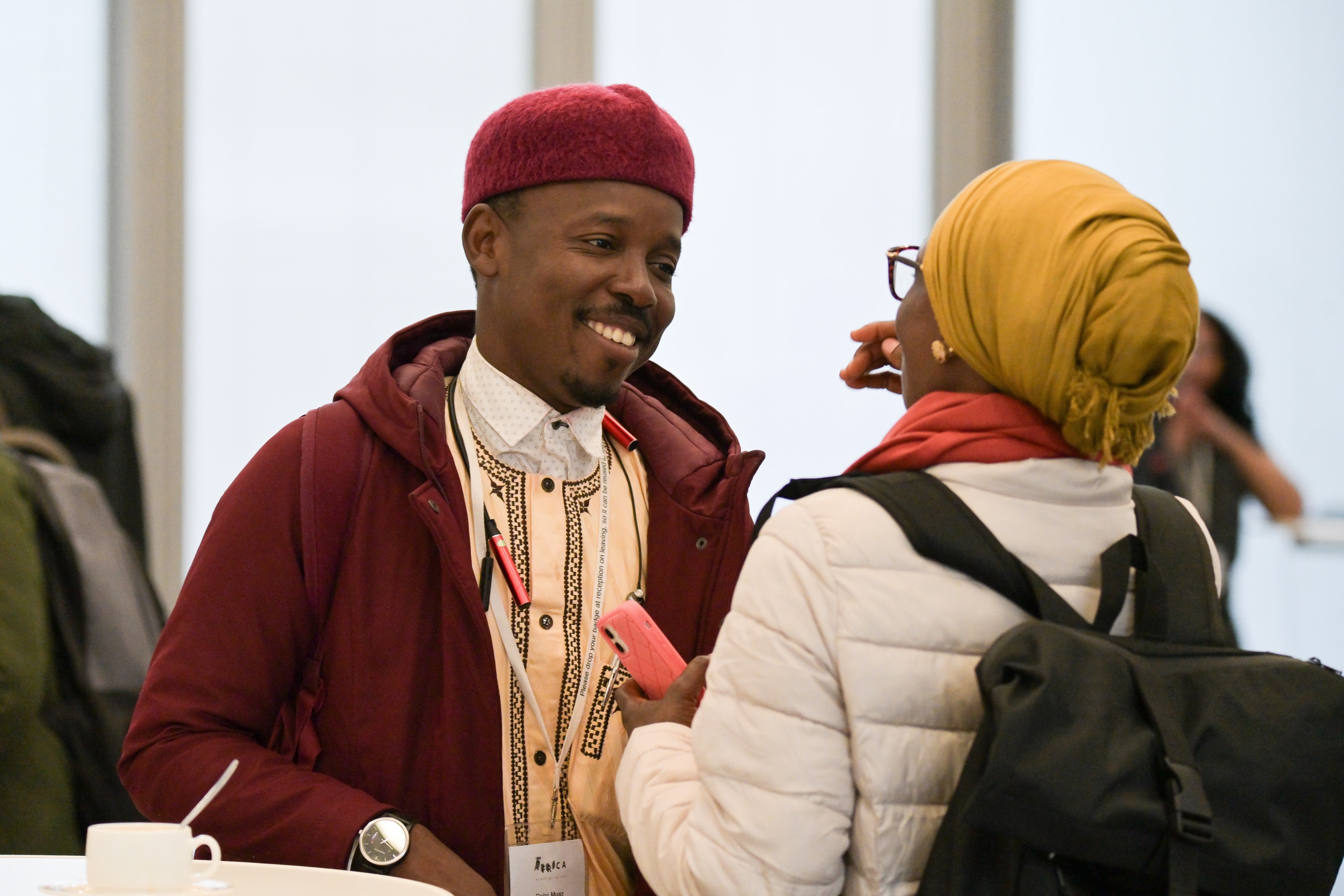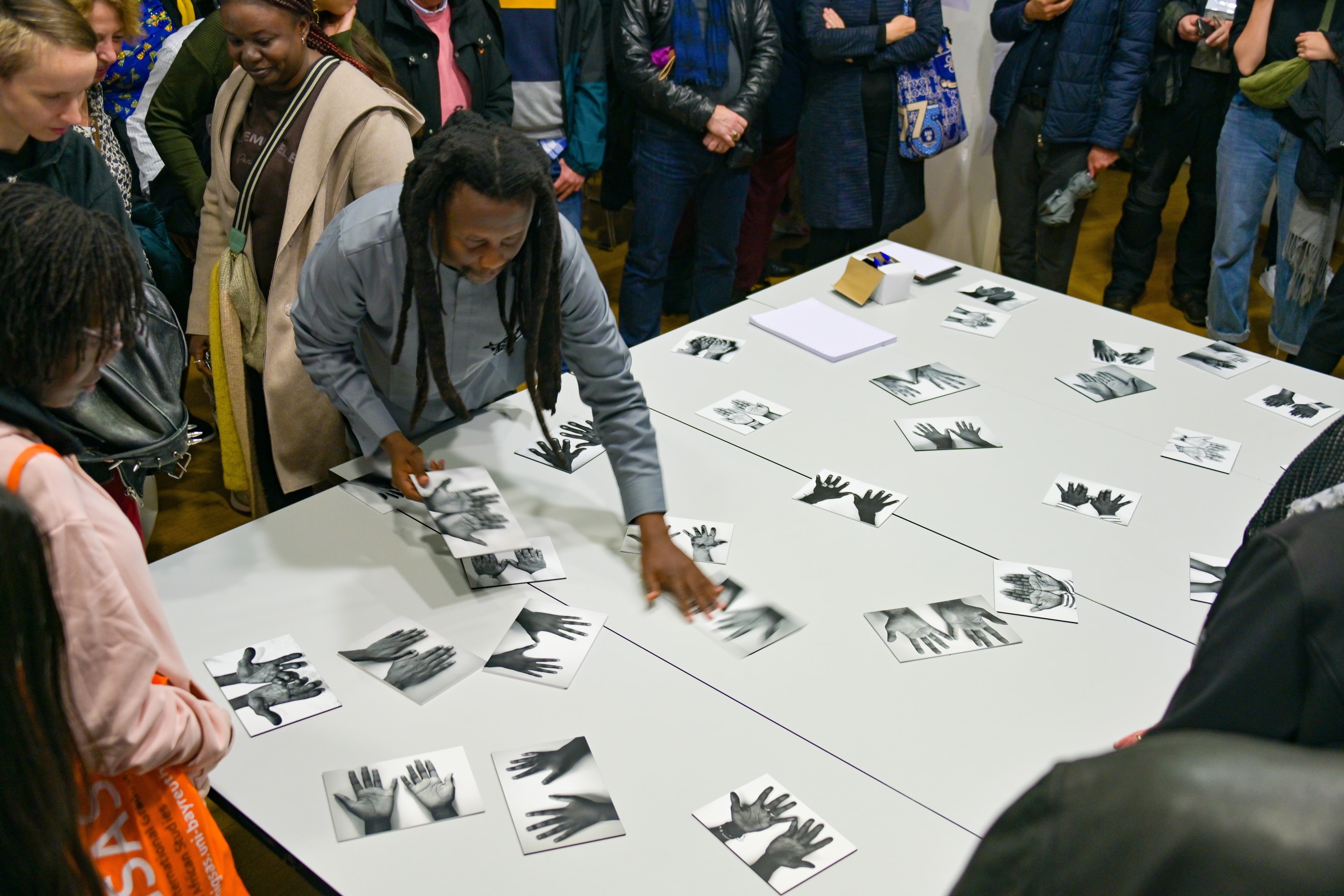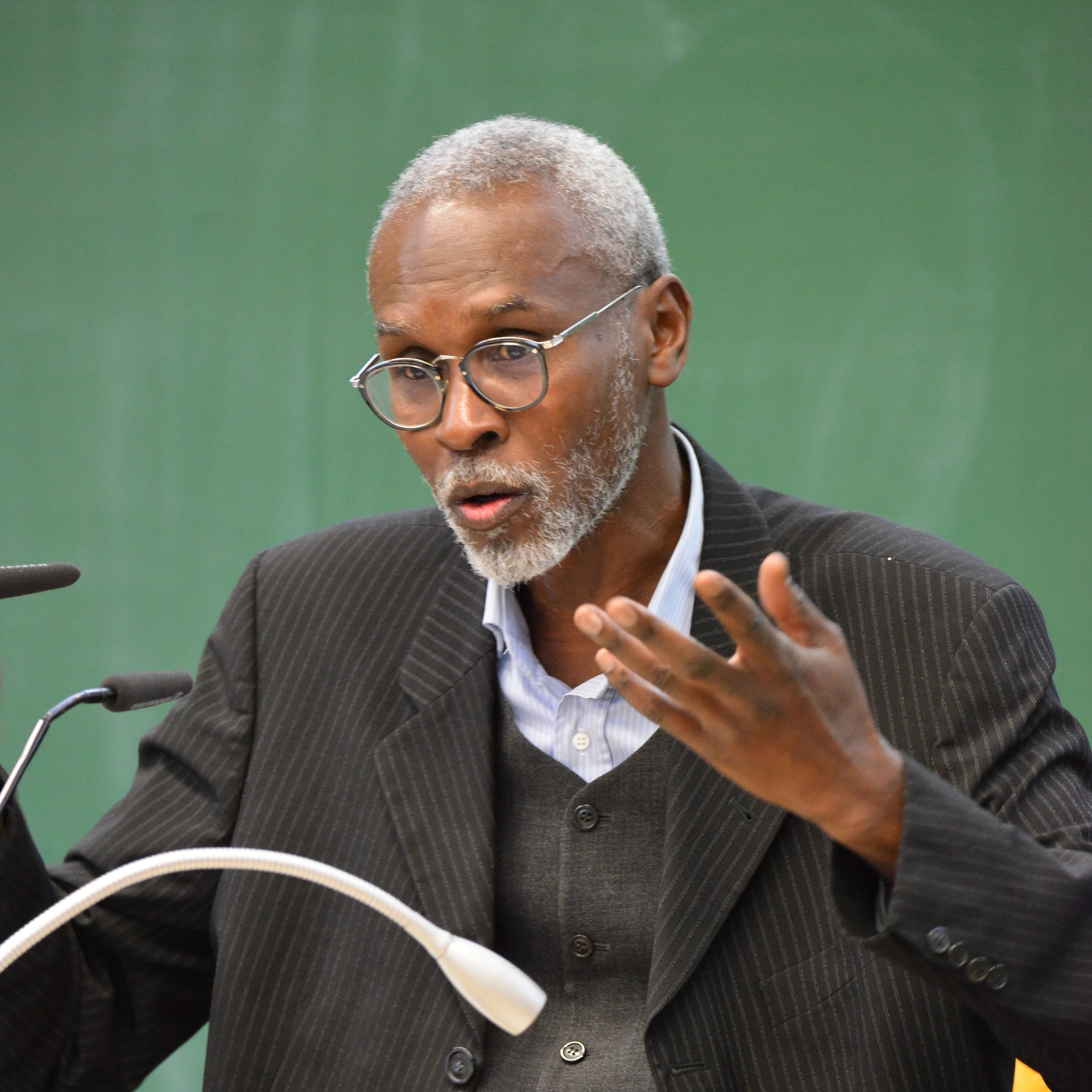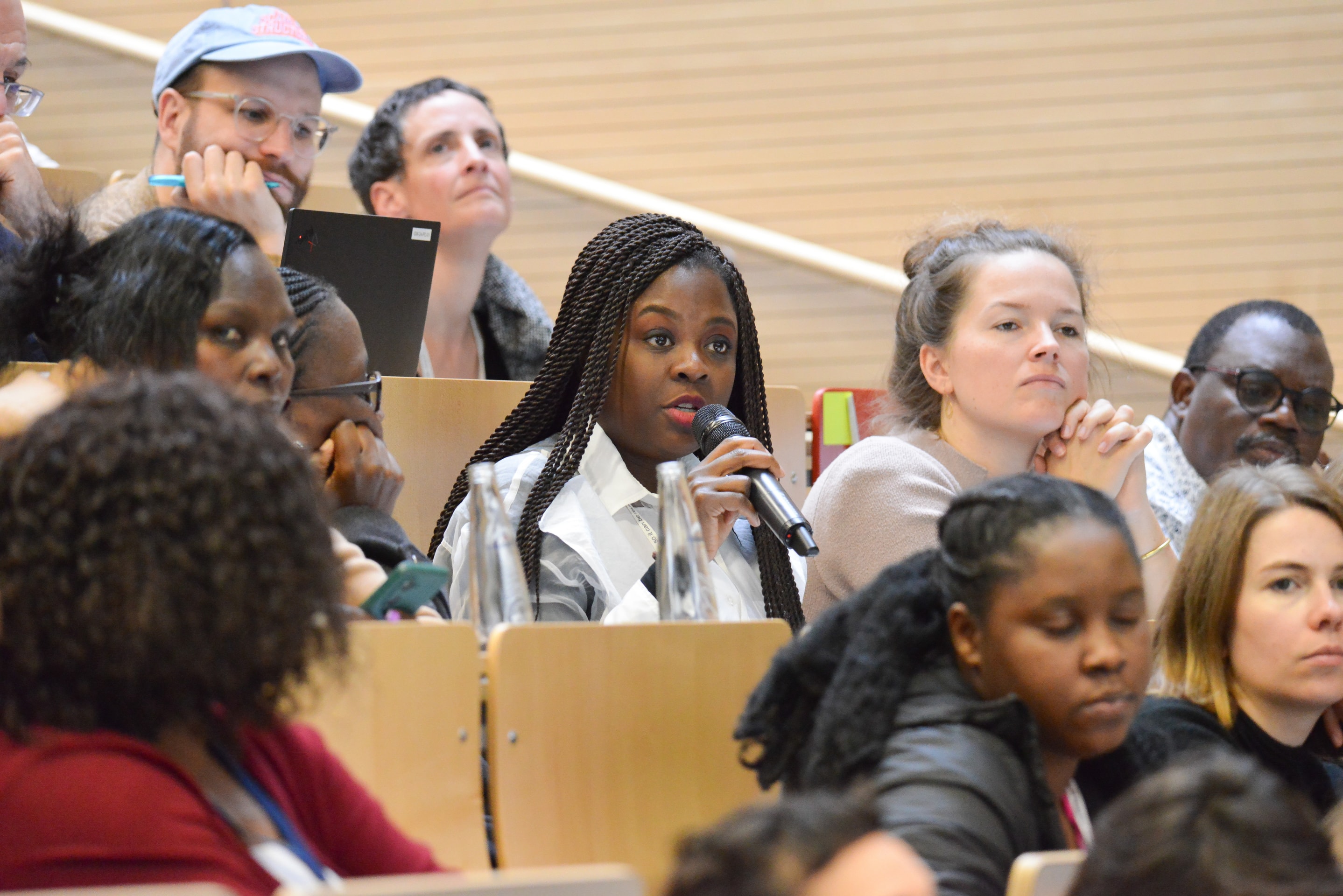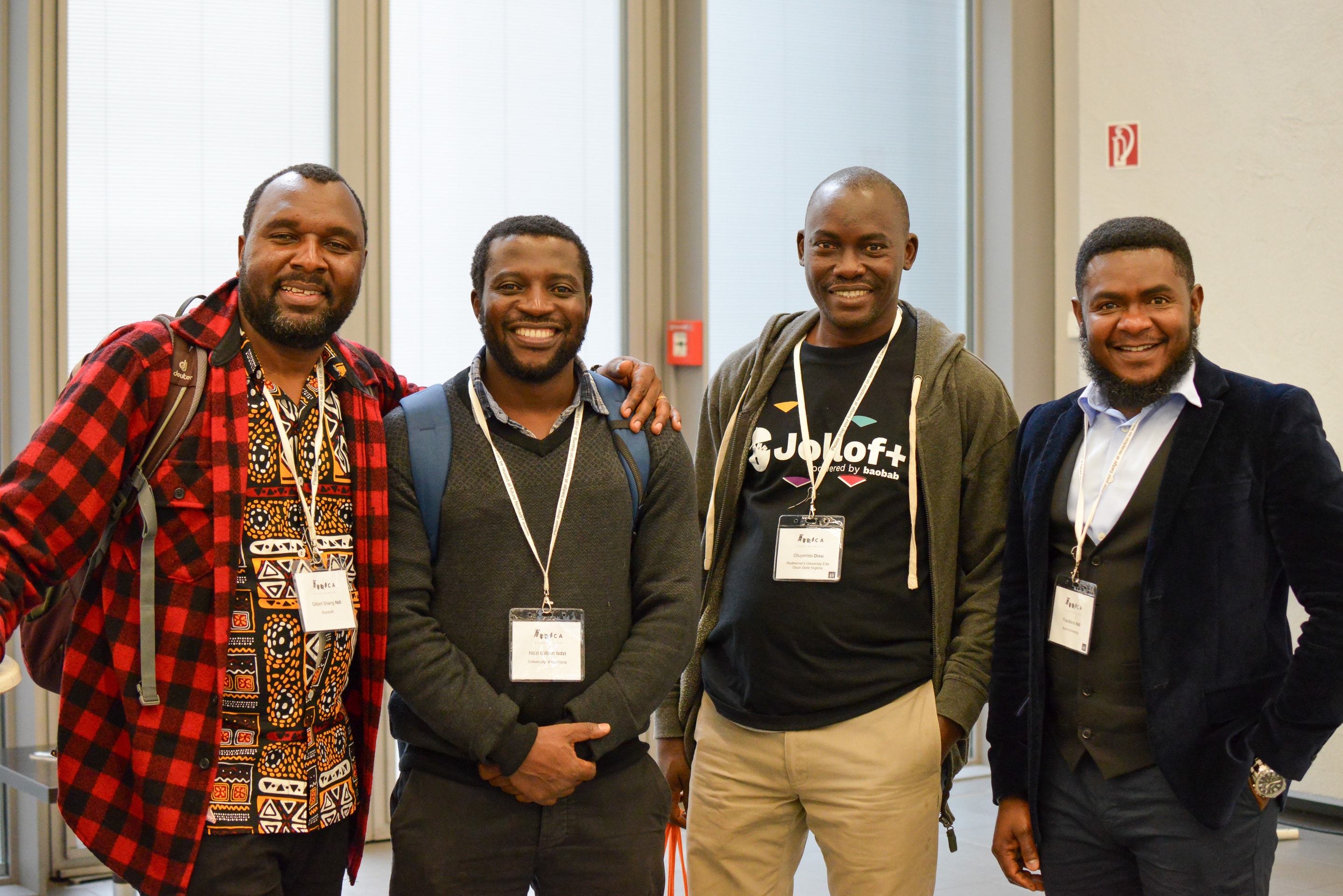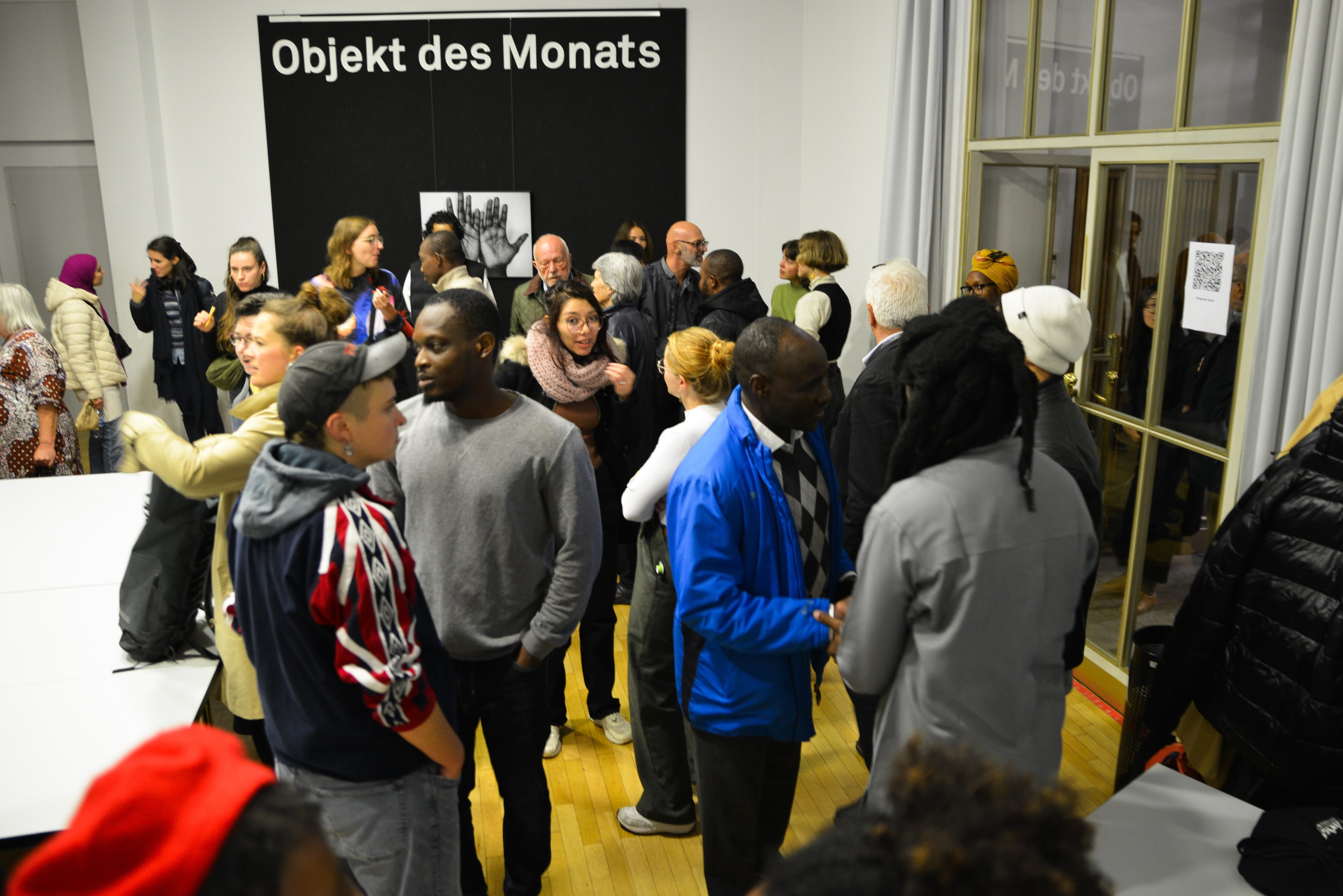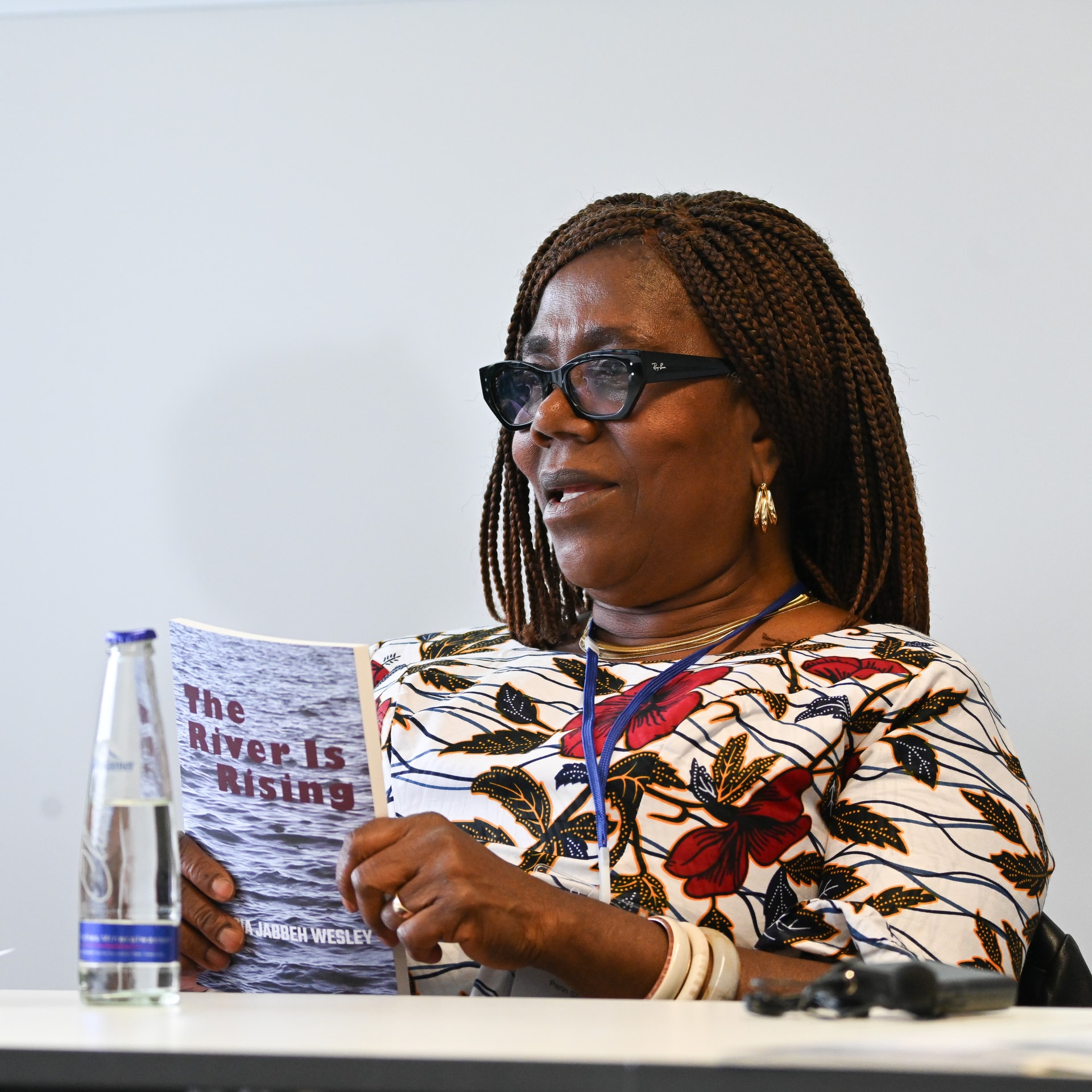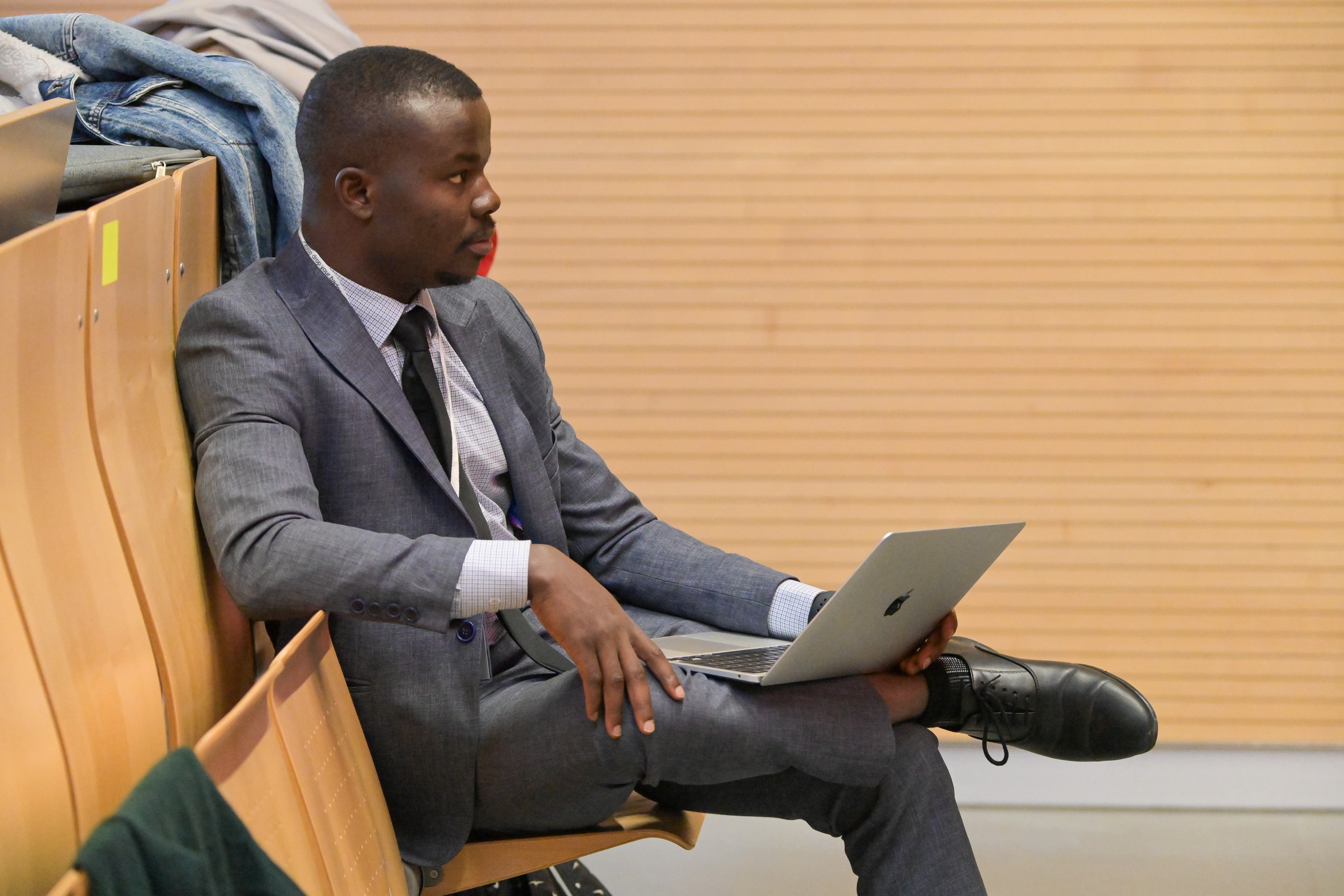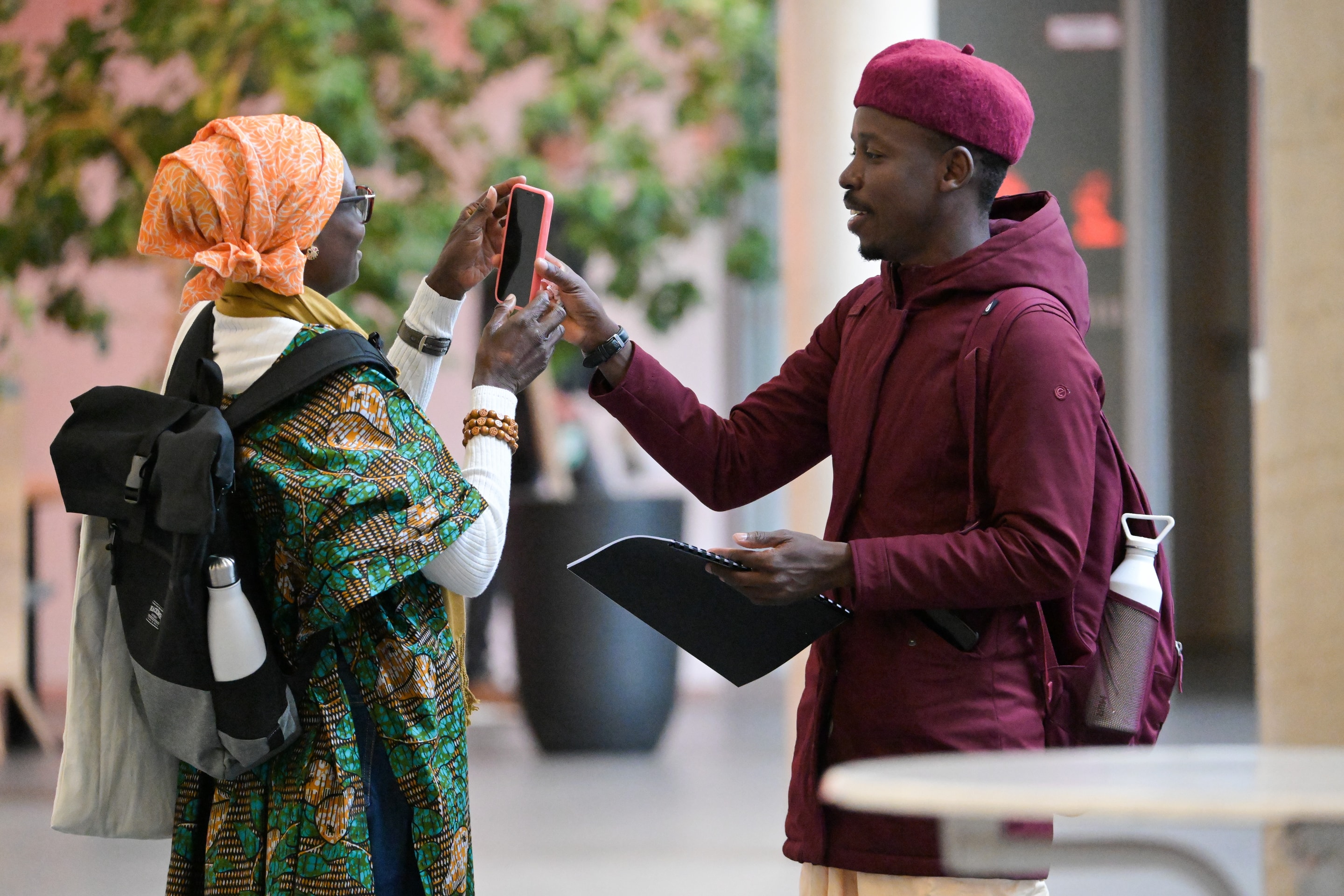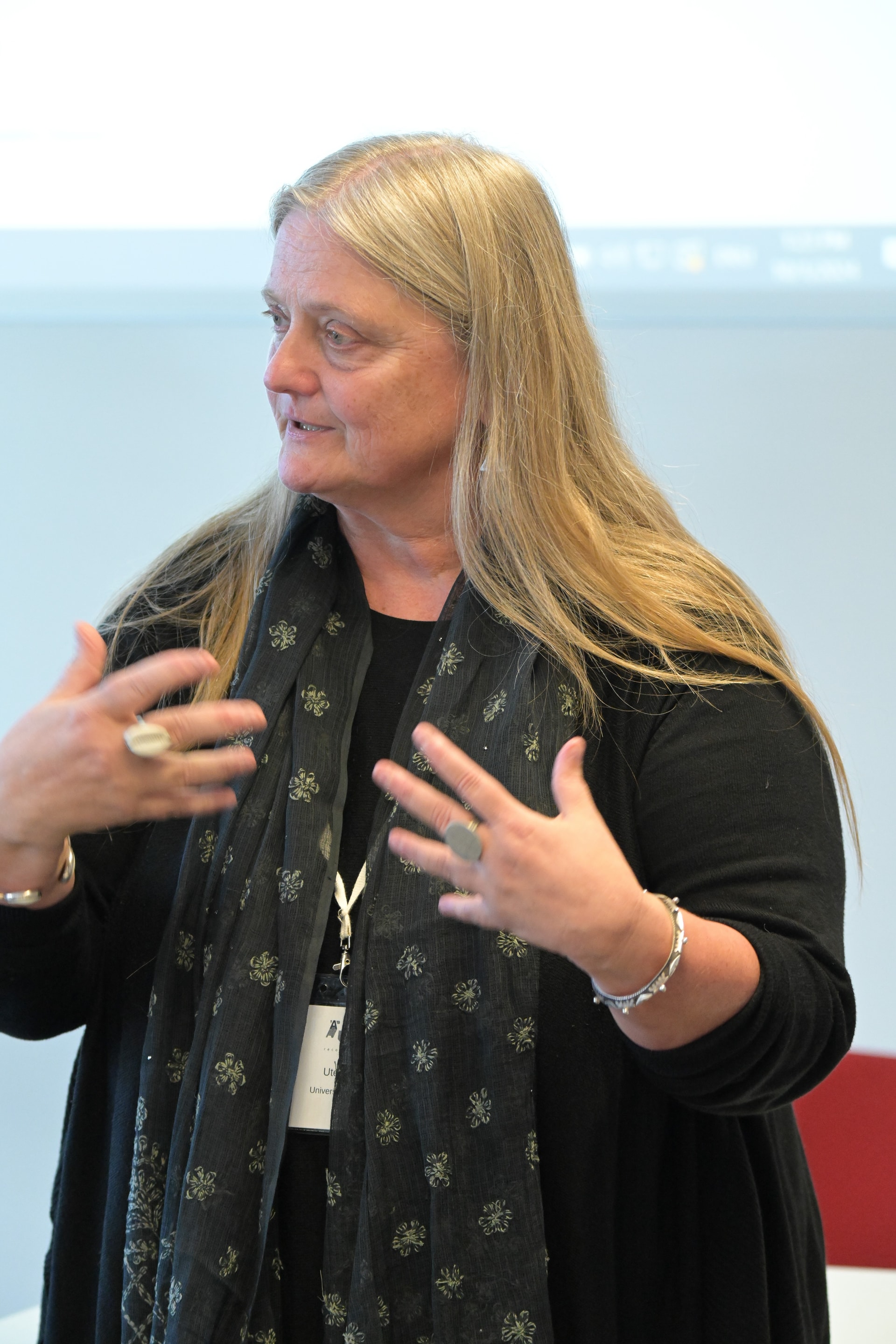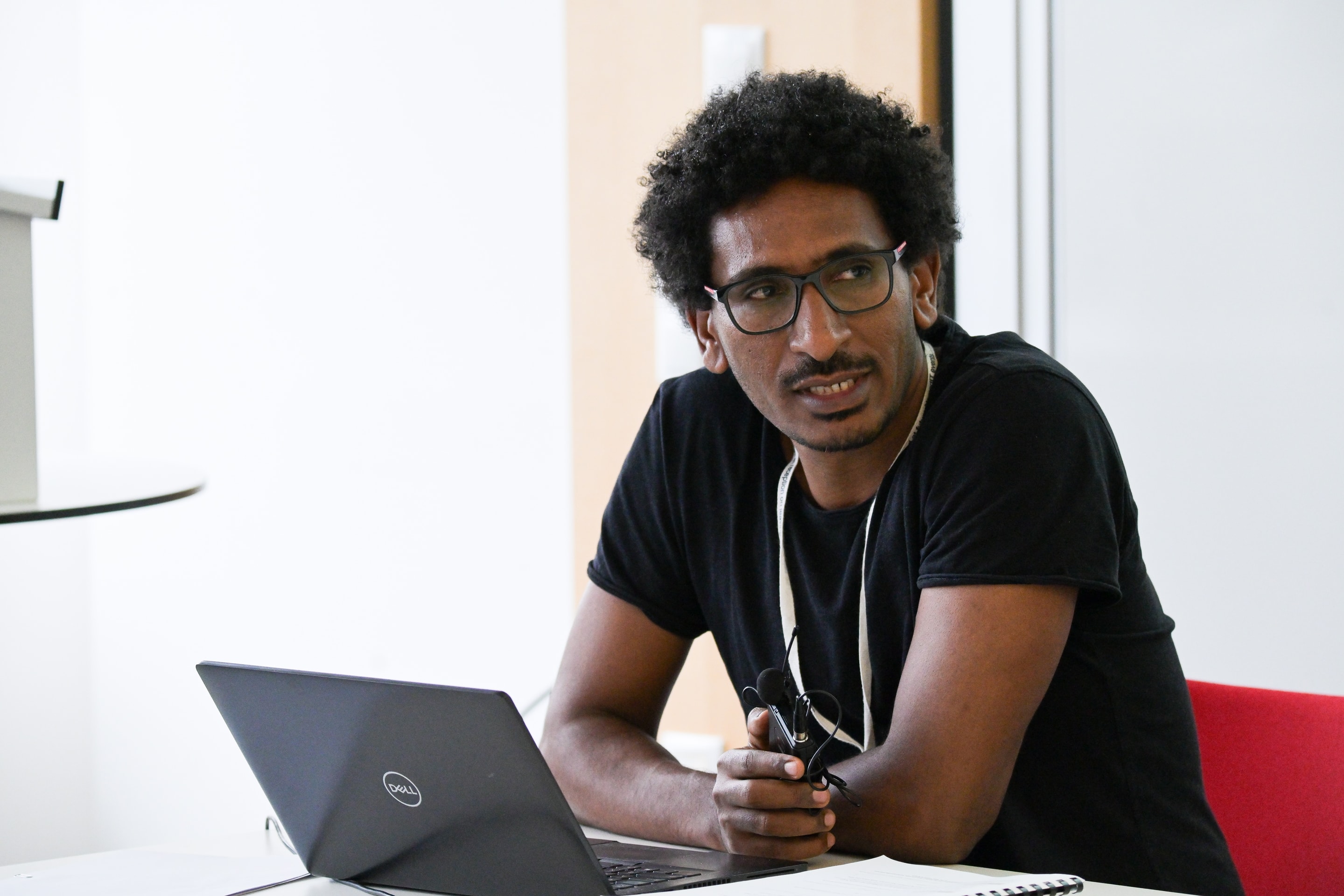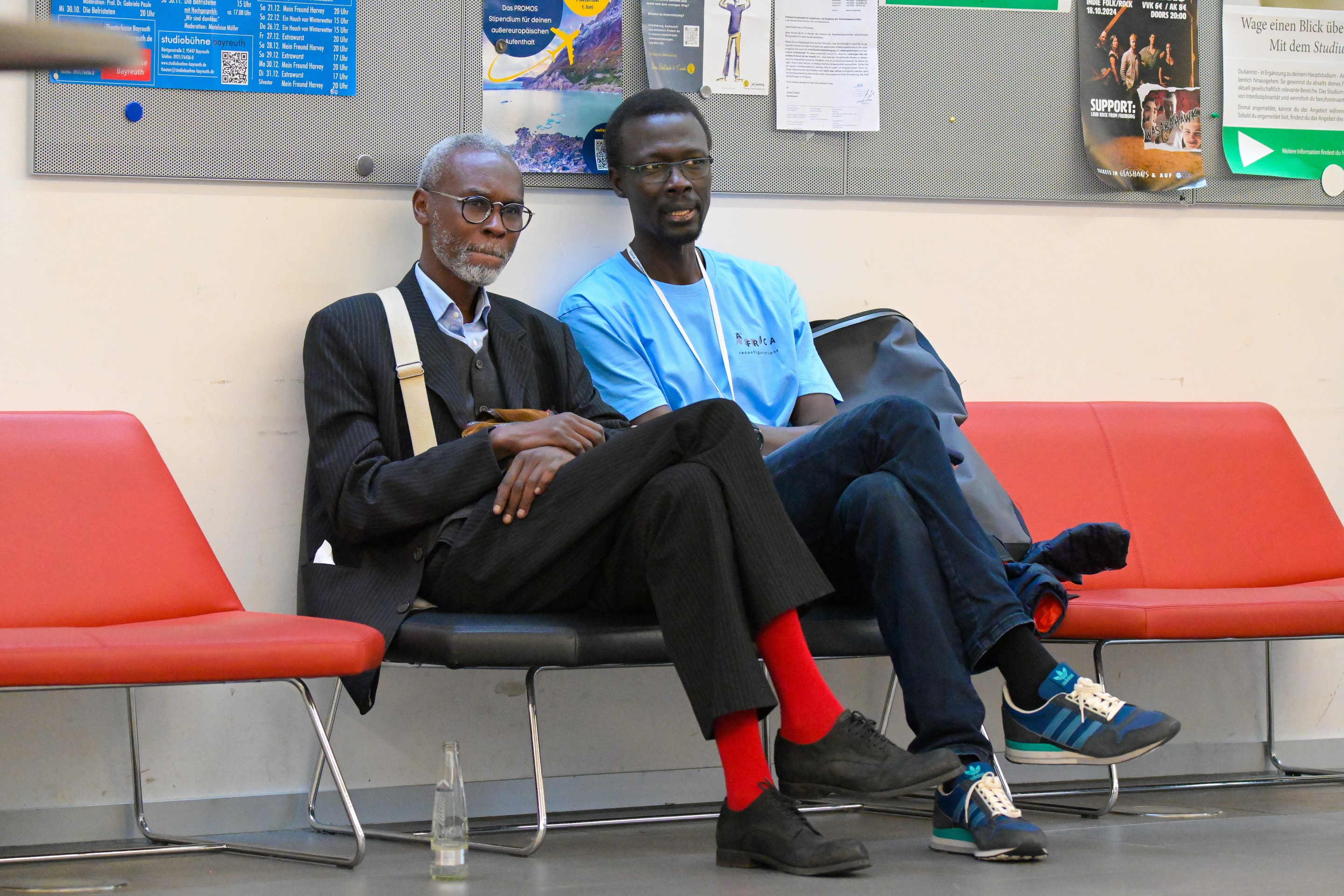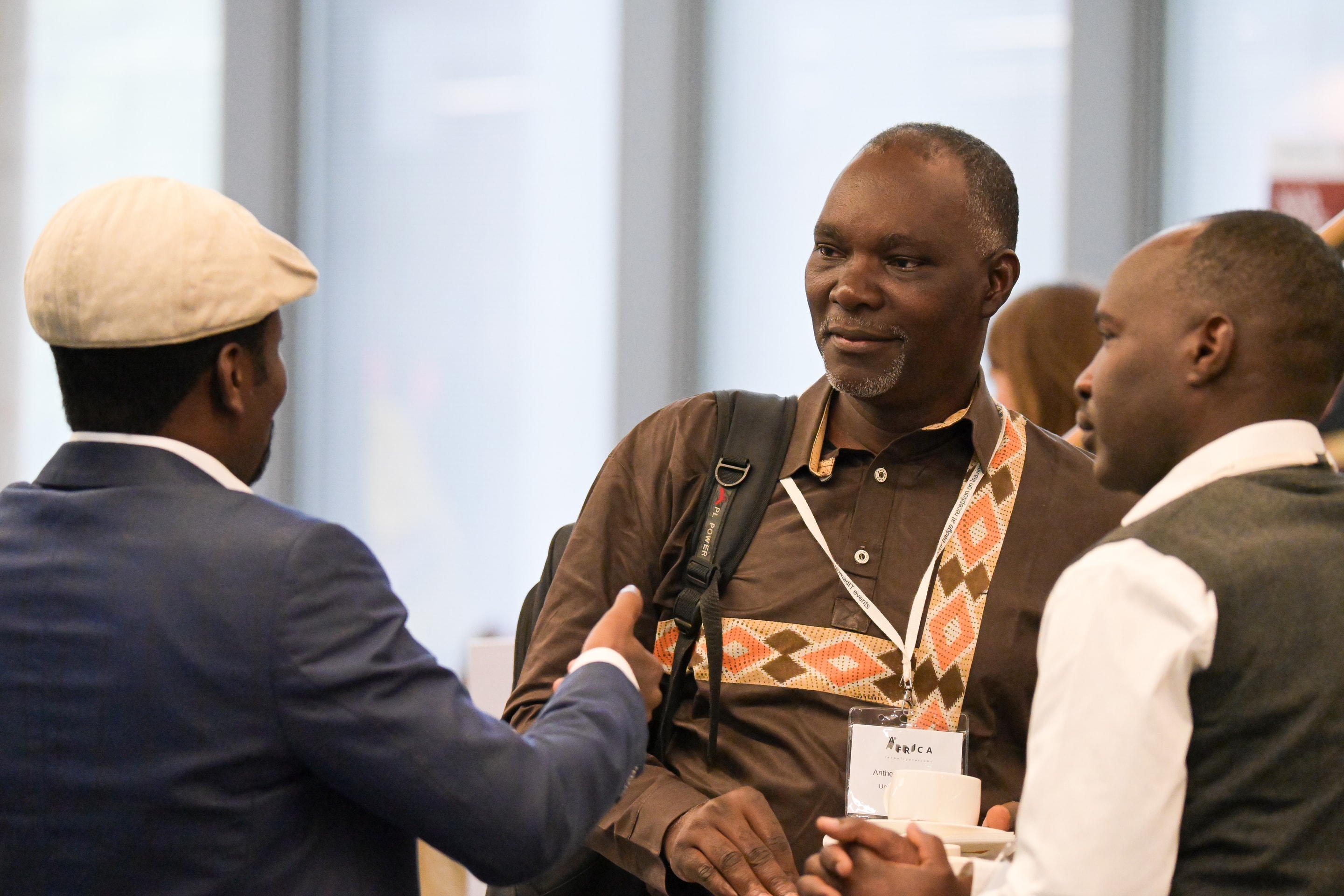News
VAD Conference 2024: Reconfigurations in Africa – and in African Studies
06.12.2024
The 30th VAD Conference, titled "Reconfigurations in Africa – and in African Studies," took place at the University of Bayreuth from September 30 to October 2, 2024. The biennial conference of the Association for African Studies in Germany (VAD), was organized by the Institute of African Studies and the Africa Multiple Cluster of Excellence at the University of Bayreuth, and supported by NomadIT.
Text: Dr. Doris Löhr
The 2024 VAD conference explored transformative processes in Africa and their implications for African studies globally. Its hybrid format, only for the second time since the VADs inauguration in 1969, brought together almost 700 participants, with 400 attending in person. The campus of the University of Bayreuth was chosen as conference venue for the second time, after 2014, when “Future Africa” was the theme, based on the research project of the by then newly founded Bayreuth Academy of Advanced African Studies.
The 2024 conference focused on the intersections of African perspectives with pressing global challenges such as climate change, pandemics, and democratic erosion. A core goal was to deconstruct Eurocentric paradigms in knowledge production by emphasizing reflexivity, relationality, and multiplicity in African studies. Discussions ranged from historical and contemporary changes in African institutions to their handling of crises like climate impacts and armed conflicts. The conference encouraged a re-evaluation of how African and non-African institutions collaborate in knowledge creation. Scholars, activists, politicians, and artists participated, fostering a collaborative and multidisciplinary exchange.
The program featured seven thematic streams collaboratively developed with representatives from the African Cluster Centers (South Africa, Kenya, Nigeria, Burkina Faso), Bayreuth scholars, and the VAD Main Committee. The streams included:
- Localized African Studies: Debates on perspectives shaped by specific regional contexts.
- Contemporary Crises: Migration, pandemics, climate change, and their societal impacts.
- Africanness: Reflections on African identities in Africa and the diaspora.
- Digital Communication and Archiving: The role of social media and digital tools in African studies.
- African Art: Exploration of innovative forms of cultural production and collaboration.
- Ecology and Global Awareness: Examining the interconnectedness of environmental, spiritual, and societal systems.
This approach aimed to enrich African studies and expand its global resonance. The conference hosted thematic panels, workshops, and keynote speeches addressing both theoretical and practical aspects of reconfiguring African studies. Topics included the effects of colonial legacies, the role of African universities, and pathways to equitable academic collaboration. The conference reinforced the importance of decentering European perspectives, advocating for African-driven narratives and methodologies in research and education. It also highlighted the need to address the situatedness of knowledge, emphasizing inclusivity and accountability in global academic discourse.
The event marked a pivotal moment for African studies by fostering intellectual exchange and proposing strategies for reimagining the field in response to global and African-specific challenges. The Opening Keynote by Prof. Dr. Grace Musila (University of Witwatersrand, Johannesburg) discussed “Black Sensemaking | Discretion,” focusing on discretion as an ethical and cultural practice in Black societies. The Closing Keynote by Mactar Ndoye (former UN High Commissioner for Human Rights delegate) reviewed the UN's Decade for People of African Descent (2015–2024), its achievements, challenges, and expectations for a proposed second decade.
Highlights were also the Young Scholars Forum, held on September 29, 2024, this session was exceptionally well-attended and widely praised, providing an invaluable platform for emerging voices in African Studies. A vibrant social gathering on September 30 at ZENTRUM added a cultural and celebratory dimension to the conference. Attendees appreciated the event’s excellent catering and DJs (H. Dorsch and T. Simmart), fostering informal networking and engagement. During the conference, the a pre-opening of the exhibition With these hands by South African artist Sabelo Mcinziba was held at Iwalewahaus.
In sum, the VAD 2024 Conference was a resounding success, advancing the decentering of European perspectives in African Studies while fostering meaningful collaboration among global stakeholders. It underscored the evolving role of African institutions and the necessity of interdisciplinary and reflexive approaches in addressing contemporary challenges. Additionally, the conference gave a platform for networking and feedback from participants highlighted the quality of scholarly engagement and the importance of integrating cultural and social elements into academic events.
For more pictures from the VAD conference please visit this link. Photo credit for all pictures is Africa Multiple Cluster of Excellence/Robert Götze


